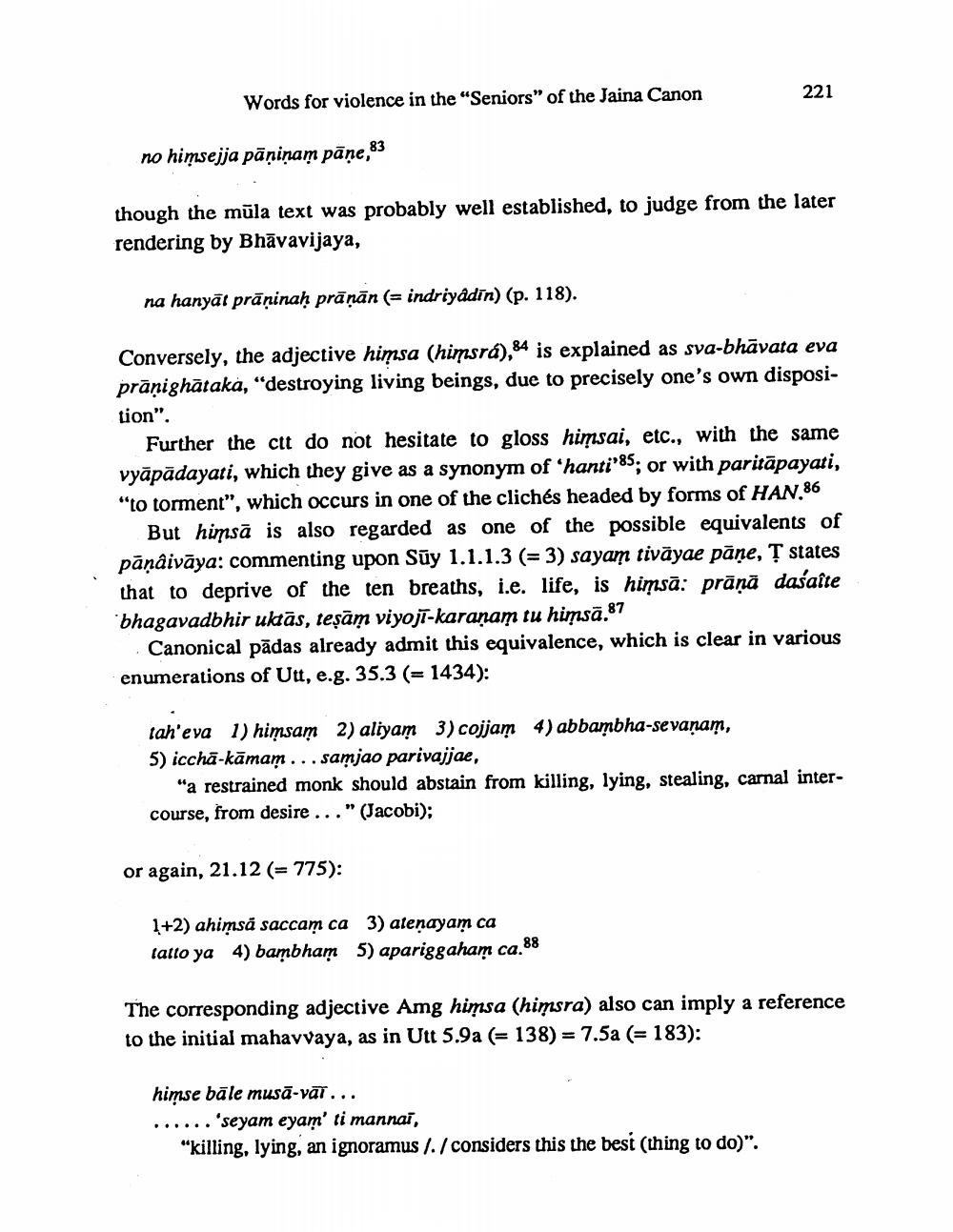________________
Words for violence in the “Seniors" of the Jaina Canon
221
no himsejja pāņinam pāņe,83
though the mula text was probably well established, to judge from the later rendering by Bhāvavijaya,
na hanyāt prāņinaḥ prāņān(= indriyadin) (p. 118).
Conversely, the adjective himsa (himsrá), 84 is explained as sva-bhāvata eva prānighātaka, "destroying living beings, due to precisely one's own disposition".
Further the ctt do not hesitate to gloss himsai, etc., with the same vyāpādayati, which they give as a synonym of 'hanti'85; or with paritāpayati, "to torment", which occurs in one of the clichés headed by forms of HAN. 86
But himsā is also regarded as one of the possible equivalents of pāņaivāya: commenting upon Sūy 1.1.1.3 (= 3) sayam tivāyae pāņe, Ţ states that to deprive of the ten breaths, i.e. life, is hiņsā: prāņā daśaîte bhagavadbhir ukatās, teşām viyojī-karanam tu himsā.87
Canonical pādas already admit this equivalence, which is clear in various enumerations of Utt, e.g. 35.3 (= 1434):
tah'eva 1) himsam 2) aliyam 3) cojjam 4) abbambha-sevanam, 5) iccha-kāmam... samjao parivajjae,
"a restrained monk should abstain from killing, lying, stealing, carnal intercourse, from desire..." (Jacobi);
or again, 21.12 (= 775):
1+2) ahimsă saccam ca 3) atenayam ca lallo ya 4) bambham 5) apariggaham ca.88
The corresponding adjective Amg himsa (himsra) also can imply a reference to the initial mahavvaya, as in Utt 5.9a (= 138) = 7.5a (= 183):
himse bāle musā-vai... ...... 'seyam eyam' ti mannai,
"killing, lying, an ignoramus /. / considers this the best thing to do)".




